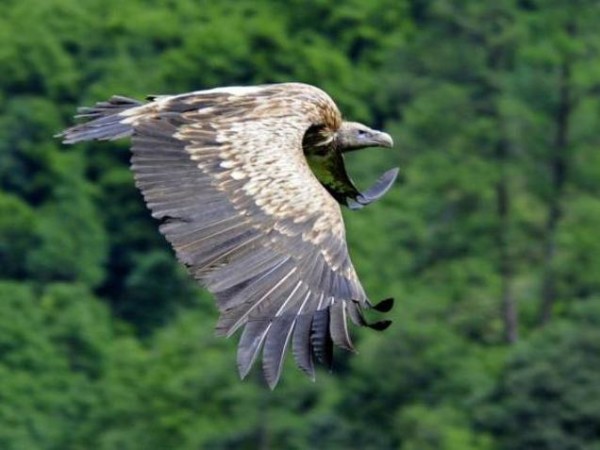Multi-dose vials of painkiller diclofenac used for human patients, has been banned in veterinary treatments so that vultures could be saved.
In a major step, the Union Ministry of Health has banned multi-dose vials of human formulations of diclofenac, a painkilling drug that is responsible for the death of vultures in large numbers, reducing them to a critically endangered species in India and other Asian countries. The ban has come into force with immediate effect.
The painkiller was banned from veterinary use in India in 2006 because of its lethal effects on vultures, which feed on carcasses of treated cattle and buffaloes. But since then human formulations of the drug have been illegally used to treat animals.
The ban restricts diclofenac production to human formulations in a single 3ml dose, according to a note from BirdLife International, a global partnership of independent organisations working together for nature and people across more than 120 countries worldwide. In India it partners with the Bombay Natural History Society (BNHS).
Veterinary diclofenac caused a decline in the populations of three species of South Asia’s Gyps vulture: white-rumped, long-billed and slender-billed vultures. Oriental white-backed vultures declined by more than 99.9 per cent between 1992 and 2007, a loss of tens of millions.
After years of campaigning by conservationists, the governments of Bangladesh, India, Nepal and Pakistan banned veterinary formulations of diclofenac between 2006 and 2010. In India vulture population declined from over four crore to about a lakh in 2007. Recently, experts recorded a slowing of the Gyps vulture decline as a result of the bans.
However, human formulations of diclofenac are still widely available and illegally used to treat livestock, the carcasses of which are the main food source for vultures in South Asia, the note said.
Chris Bowden, programme manager of the Royal Society for the Protection of Birds (RSPB), UK and Saving Asia’s Vultures from Extinction (SAVE), said: “Despite diclofenac being illegal for veterinary use since 2006, human formulations have been made readily available in large vials by irresponsible drug companies, making it cheap and easy to use illegally to treat cattle and buffalo. This ban means that large vials can no longer be manufactured and sold, making it more difficult to use the drug illegally for animals and thereby removing it from the primary source of food for Asia’s vultures. This is a huge step closer to bringing vultures back from the brink of extinction.”
Vibhu Prakash, a scientist from BNHS, said, “Probably the most important step in vulture conservation since Diclofenac’s ban for veterinary use in 2006, this latest announcement shows how much progress has been made. But there is still a job to do to make sure that safe alternative drugs are used. Unfortunately, many alternatives, like ketoprofen, are not vulture-safe and remain untested. In fact, there is only one vulture-safe alternative: meloxicam.”
While these issues are being tackled in situ, SAVE has established captive breeding of vultures at centres in India, Nepal and Pakistan. The birds will be released to supplement the surviving wild populations, but only when it is safe to do so.






Leave a reply